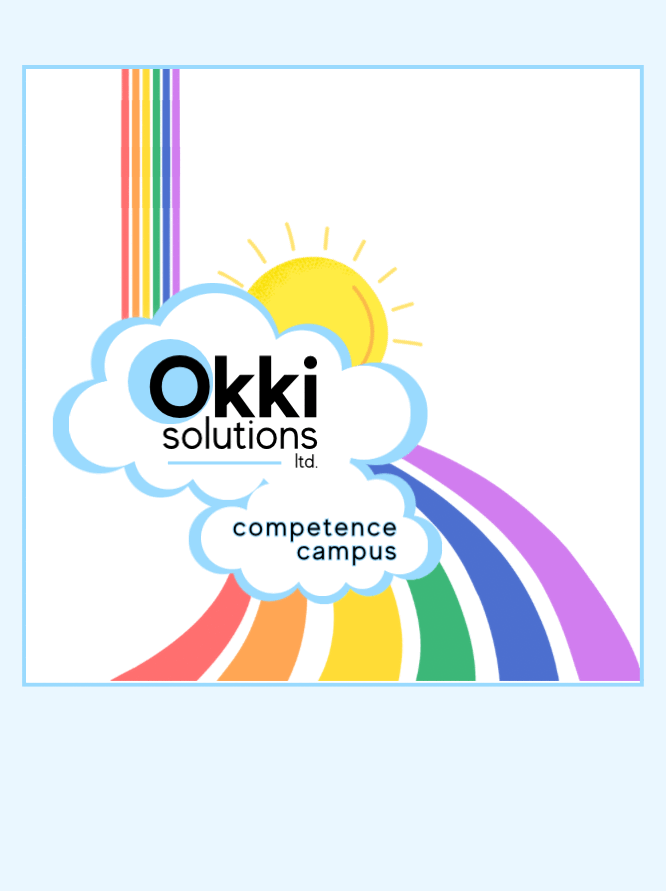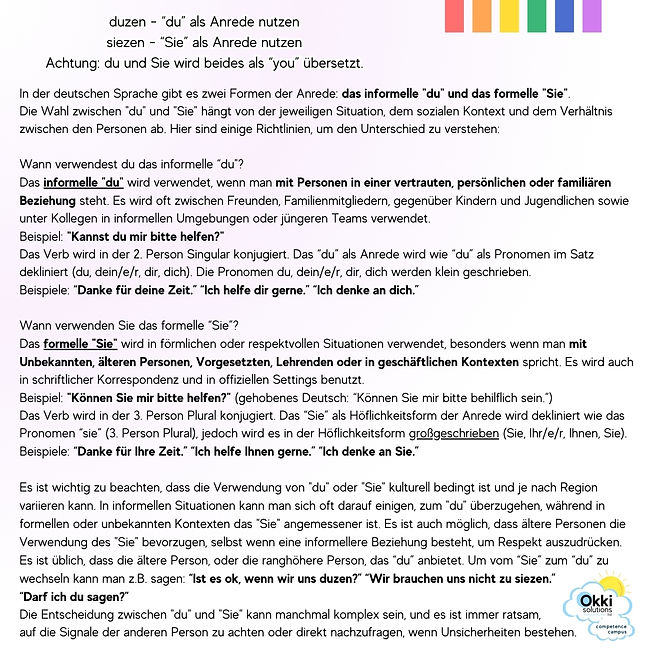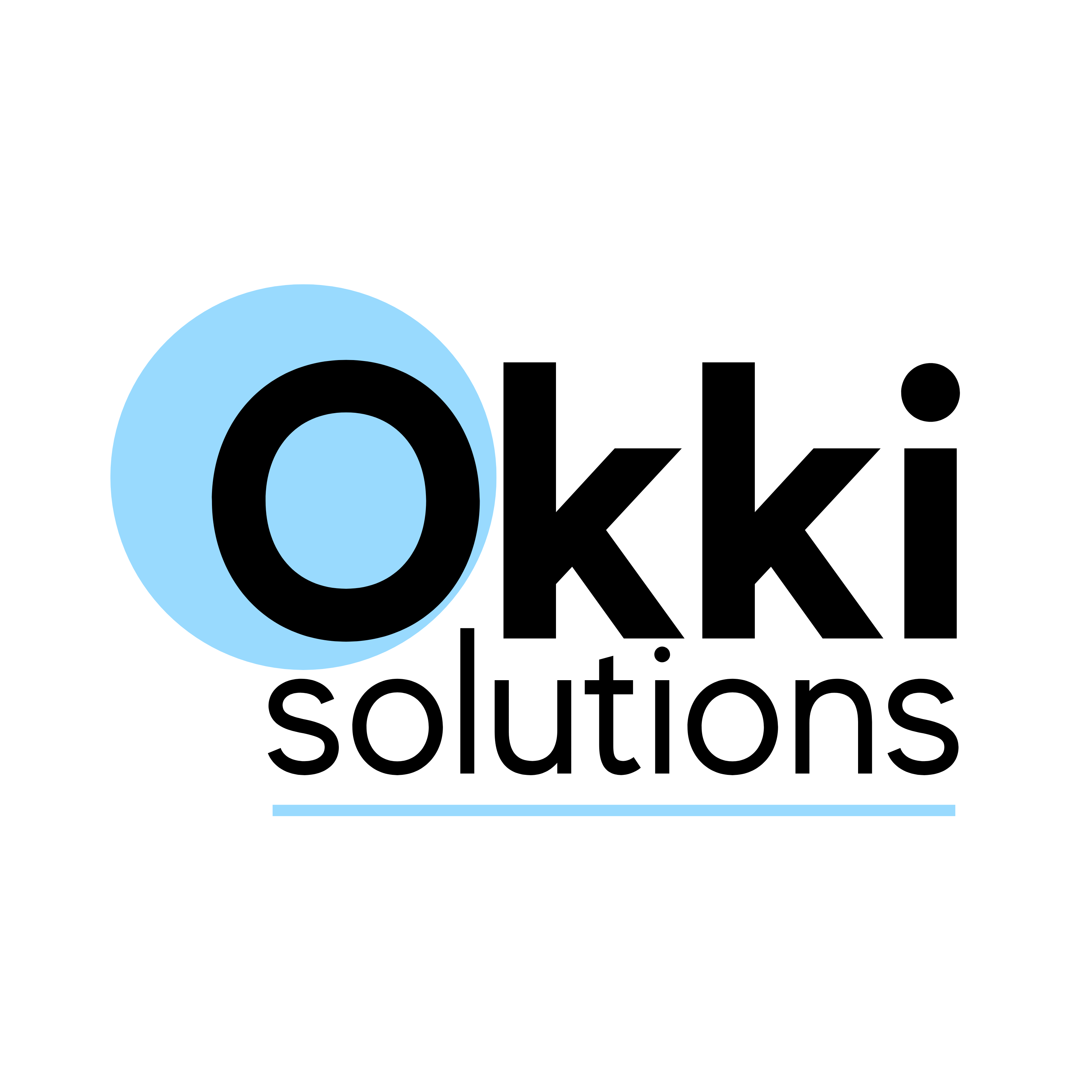
Welcome to today’s blog.
Francisco Masinde is sharing with you today insights from his own experience as a Kenyan living in Germany for more than a decade. He came to pursue his higher education, settled in Cologne, now certified as a Quality Manager in Health Care, and together with his wife Jasmin Masinde, founded Okki Solutions Ltd. Kenya and Okki Solutions International GmbH in Germany.
Jasmin Masinde, a native German and experienced management consultant, is introducing the Competence Campus Project of Okki Solutions Ltd. in the second part of today’s blog, which is an integral part of the Okki Solutions Bridging Programs.
Francisco’s part of the article is in English only. Jasmin is offering her content as a text in German, which we translated for your understanding and to help those interested in practicing their German language skills.
A Kenyan’s German Language Journey
Francisco Masinde
As a Kenyan student, my journey with the German language was primarily driven by the goal of acing proficiency exams, ranging from levels A1 to B2. This educational pathway ingrained in me a deep familiarity with the ‘Sie’ form – the formal address in German. It was a structured, exam-centric learning process, heavily tilted towards mastering this formal mode of communication.
Upon my arrival in Germany, I was met with an unexpected linguistic challenge. Contrary to my thorough training in the ‘Sie’ form, I discovered that everyday conversations in Germany leaned heavily towards the informal ‘du’ form. This realization was not just surprising but also disorienting. I had come from an English-speaking background, where such formalities in language are less pronounced, and my German practice had been limited to classroom settings without much exposure to native speakers.
Struggling with the phonetics of the ‘Sie’ form was one thing but realizing that ‘du’ was the more prevalent form in social interactions felt like a curveball. My brain, wired to think and communicate in the formal German taught in Kenyan classrooms, now had to pivot and adapt to this new, more casual linguistic landscape. It was as if my German language proficiency, which I had worked so hard to build, was back to square one. This initial phase of my life in Germany was not just about adapting to a new culture and environment, but also relearning and reshaping my understanding of the German language in its everyday, practical use.

Continuing from my initial linguistic shock, I embarked on a self-directed mission to master the ‘du’ form of German. The power of learning a language through practice, particularly by speaking and listening, cannot be overstated. In my case, motivation stemmed from a desire to integrate into German social culture. I was growing weary of conversations switching to English for my benefit, a well-intentioned but somewhat isolating gesture.
My journey into the ‘du’ world was fueled by my living situation. I was sharing a home with my sister and my five-year-old niece, who naturally communicated in the ‘du’ form. This familial setting, combined with diligent online learning, rapidly advanced my ‘du’ form proficiency. I consider myself incredibly fortunate to have had this German connection in my family. Making German friends without strong language skills is a daunting task, often taking years to accomplish – but that’s a tale for another blog.
As I dove deeper into learning the ‘du’ form, a new challenge emerged: I started to mix up the ‘du’ and ‘Sie’ forms, especially in speech. This wasn’t intentional but a humorous hiccup in my language learning journey. I recall interrupting lectures to express myself in English, knowing that I had the answers and could articulate them eloquently in my head. However, as soon as I attempted the German translation, I stumbled, often mixing forms and ending up asking my best friend – a fellow English speaker with a similar German proficiency level – “How do I say [this] in German?”
This issue of mixing forms followed me into my professional life. While I steadily improved in German, automatic speech occasionally betrayed these errors. Early in my career, I mistakenly addressed a young director using the ‘du’ form, an error that nearly led to an official warning. My experiences in hospitals and nursing homes were similarly instructive, with patients and clients expressing preferences for one form over the other.
Over time, through varied conversational practice and exposure to different contexts, I learned the appropriate usage of both forms. Now, I offer or default to the ‘Sie’ form in professional settings or when in doubt, especially with clients, patients, or residents. It’s important for me to explain my choice of form, ensuring clear communication and mutual respect.
Learning the intricacies of ‘du’ and ‘Sie’ has been more than a linguistic journey; it’s been a deep dive into cultural understanding and interpersonal dynamics in Germany. This experience has not only shaped my language skills but also my approach to social and professional interactions in my adopted home.

“How to teach German in a modern and agile approach, which connects fun, enhances not only language but also personal skills, while being in alignment with Okki Solutions Vision and Values?”
Jasmin Masinde
That was my starting point in developing the Okki Solutions Competence Campus Project, which is currently in Beta-Testing-Phase of the project. I am Jasmin Masinde and thrilled to talk about the Competence Campus, a project dear to my heart.
As a student, I managed to get acceptable grades in my English lessons at school, but I was barely able to express myself, let alone write contracts, project plans or having difficult conversations in this foreign language. My certificate held the promise, that I was able to communicate in English, but it took some more years, to become comfortable. I would love to say, I just had to practice, but that was not it. It was also the fact, that after leaving school, I encountered English content which really interested me. And with the spark of my interest in the topics taught to me in English, my language skills grew continuously up to today, where I am using English comfortably and freely, accept my German accent and trust that people will understand, even if I might make some mistakes. Fun, interest and courage of embracing imperfection helped me to the level I am at today. And I could not be happier to introduce our Competence Campus today in this blog.
The Okki Solutions Competence Campus is part of Francisco`s and my vision to bridge Kenya and Germany in a way, that benefits all and offers cultural connection on the level of the heart and mind.
So what is special about our journey to Germany?
We have opted for an extensive learning approach. There are many bite-sized lessons (our “The Daily Dose of German”) at different levels, which help you to understand and practice the language in short lessons. In addition, we facilitate learning through our multilingual content, which makes it easy to quickly grasp even more difficult texts. To cater for intensive learners, there is an “extra mile” where grammar or linguistic subtleties are dealt with in detail.
At the same time, we focus on expansive learning, i.e. learning from the intrinsic motivation to expand one’s own ability to act. Our content is actively adapted to the needs of our learners (student-lead), continuously expanded and enables them to learn at their own pace as well as making the language truly relevant to their lives.
In alignment with our values at Okki Solutions, the Competence Campus is designed to create a diverse and inclusive learning environment for learning German. It is very important to us that not only language skills are developed, but that key skills such as self-management and resilience can be learnt by the participants along the way. This makes the time spent at the Okki Solutions Competence Campus twice as valuable, because in addition to learning German, you also learn to carry yourself in a more conscious, healthy way and with awareness. All this with your full senses and, in many places, with fun and creativity.
A particular highlight of our Competence Campus is the continuous contact with native German speakers, which is important in the area of specialized sector specific training and conversational language.
It is almost impossible to put all our ideas and thoughts behind the Okki Solutions Competence Campus into words, which is why we will start sharing excerpts from the content here on the blog and on our other social media channels.
Today we share a few excerpts from our first lesson “The daily dose of German” especially for nurses and an excursion into the question addressed by Francisco today and Marzellus in last week’s blog: “When do I use Sie and when do I use du?”, which we discuss in detail in the grammar section of the Competence Campus.
Simple exercises on this topic can also be found in many lessons of the Okki Solutions Competence Campus. Come on a journey with us and learn “German with Okki”.
Glad you’re here. I’m happy for each and every one of you and I am grateful to be able to accompany the Okki Solutions Competence Campus project from its initial idea to this point and much further.

“Wie kann man Deutsch in einem modernen und agilen Ansatz unterrichten, der Spaß macht, nicht nur die Sprache, sondern auch die persönlichen Fähigkeiten fördert und gleichzeitig mit der Vision und den Werten von Okki Solutions übereinstimmt?”
Jasmin Masinde
Das war mein Ausgangspunkt für die Entwicklung des Okki Solutions Competence Campus Projekts, das sich derzeit in der Beta-Test-Phase befindet. Ich bin Jasmin Masinde und freue mich, über den Competence Campus zu sprechen, ein Projekt, das mir sehr am Herzen liegt.
Als Schülerin habe ich in der Schule zwar akzeptable Noten im Englischunterricht bekommen, aber ich war kaum in der Lage, mich auszudrücken, geschweige denn Verträge oder Projektpläne zu schreiben oder schwierige Gespräche in dieser Fremdsprache zu führen. Mein Zeugnis versprach zwar, dass ich mich auf Englisch verständigen konnte, aber es dauerte noch einige Jahre, bis ich mich sicher fühlte. Ich würde gerne sagen, dass ich nur üben musste, aber das war es nicht. Es war auch die Tatsache, dass ich nach der Schule auf englische Inhalte stieß, die mich wirklich interessierten. Und mit dem Entfachen meines Interesses an den Themen, die mir auf Englisch beigebracht wurden, wuchsen meine Sprachkenntnisse kontinuierlich bis zu dem Punkt, an dem ich heute bequem und frei Englisch spreche, meinen immer noch deutschen Akzent akzeptiere und darauf vertraue, dass die Leute mich verstehen werden, auch wenn ich vielleicht einige Fehler mache. Spaß, Interesse und der Mut zur Unvollkommenheit haben mich auf das Niveau gebracht, auf dem ich heute bin. Und ich könnte nicht glücklicher sein, unseren Competence Campus heute in diesem Blog vorzustellen.
Der Okki Solutions Competence Campus ist Teil von Franciscos und meiner Vision, eine Brücke zwischen Kenia und Deutschland zu schaffen, von der alle profitieren und die eine kulturelle Verbindung auf der Ebene von Herz und Verstand bietet.

Was ist nun das besondere an unserem Weg nach Deutschland?
Wir haben uns für einen extensiven Lernansatz entschieden. Es gibt viele bite-sized Lessons (unsere “Die tägliche Dosis Deutsch” “The Daily Dose of German”) in verschiedenen Levels, die in kurzen Lektionen helfen die Sprache zu verstehen und zu üben. Zusätzlich erleichtern wir das Lernen durch unseren mehrsprachigen Content, der es einfach macht, auch schwierigere Texte schnell zu erfassen. Um auch den intensiven Lernenden gerecht zu werden, gibt es die Extrameile, wo im Detail auf Grammatik oder sprachliche Feinheiten eingegangen wird.
Wir setzen gleichzeitig auf expansives Lernen, also das Lernen aus der intrinsischen Motivation heraus die eigenen Handlungsfähigkeiten zu erweitern. Unser Content wird dabei aktiv an die Bedürfnisse unserer Lernenden angepasst (student-lead), kontinuierlich ausgebaut und ermöglicht das Lernen im eigenen Tempo sowie einen echten Lebensbezug der Sprache.
Im Sinne unserer Werte bei Okki Solutions ist der Competence Campus darauf ausgerichtet, eine diverse und inklusive Lernumgebung für das Deutschlernen zu schaffen. Ganz wichtig dabei ist es uns, dass nicht nur Sprachkompetenz aufgebaut wird, sondern dass Schlüsselfertigkeiten wie Selbstmanagement und Resilienz ganz nebenbei von den Teilnehmenden erlernt werden können. So ist die Zeit im Okki Solutions Competence Campus doppelt wertvoll, denn neben der deutschen Sprache lernt man bei uns auch bewusster, gesünder und selbstwirksamer zu agieren. Und das alles mit allen Sinnen und an vielen Stellen auch mit Spaß und Kreativität.
Besondreres Highlight unseres Competence Campus ist es, dass ein kontinuierlicher Kontakt zu deutschen Muttersprachlern gegeben ist, der im Bereich fachspezifischer und konversationsrelevanter Sprache von besonderer Bedeutung ist.
Es ist kaum möglich all unsere Ideen und Gedanken hinter dem Okki Solutions Competence Campus in Worte zu fassen, deshalb werden wir hier auf dem Blog und in unseren anderen Social Media Kanälen beginnen, auch mal Ausschnitte aus den Inhalten zu teilen.
Heute teilen wir ein paar Auszüge aus unserer ersten Lektion “Die tägliche Dosis Deutsch” speziell für Pflegekräfte und einen Ausflug in die, von Francisco heute und Marzellus im Blog von letzter Woche, thematisierte Frage: Wann benutze ich Sie und wann benutze ich du? die wir ausführlich in der Grammatik Rubrik vom Competence Campus besprechen.
Einfache Übungen hierzu finden sich in vielen Lektionen des Okki Solutions Competence Campus. Komm gerne mit uns auf die Reise.
Schön, dass Sie hier sind. Schön, dass du hier bist. Ich freue mich über jeden Einzelnen und bin dankbar, das Projekt Okki Solutions Competence Campus von seiner ersten Idee, bis hierhin und noch viel weiter begleiten zu dürfen.


Images & Video:
- Bild von Matthias Günter auf Pixabay
- AdobeStock_515706134 von Studio Romantic
- Close up top view of multiethnic employees connect jigsaw puzzles engaged in teambuilding activity in office. Diverse multiracial businesspeople play business game connect pieces. Teamwork concept. Stock-Foto | Adobe Stock
- https://stock.adobe.com/de/images/close-up-top-view-of-multiethnic-employees-connect-jigsaw-puzzles-engaged-in-teambuilding-activity-in-office-diverse-multiracial-businesspeople-play-business-game-connect-pieces-teamwork-concept/515706134
- GIF, JPG and Video – Jasmin Masinde via Canva.com
